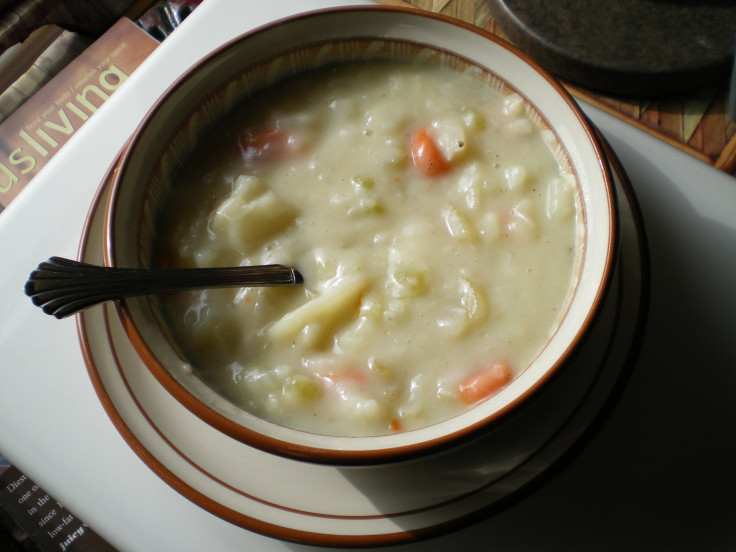Most Pregnant Women Should Be Allowed To Indulge In A 'Light Meal' While In Labor

New research presented at the Anesthesiology 2015 conference this week has found that the long-held practice of telling women to fast while they’re in labor is largely outdated. If anything, the authors concluded, most women should be encouraged to grab a nibble or two to help along the oftentimes exhaustive process.
These fasts have been recommended for decades due to the fear that eating or drinking while on labor-mandated anesthesia can greatly increase the risk of pulmonary aspiration, a term more commonly recognized as having food/water go down the wrong pipe, but which can also include vomit, blood or other stomach contents ending up in the windpipe and lungs. That aspiration might in turn cause Mendelson's syndrome, a pneumonia-like condition where the lung becomes inflamed and which can and has been fatal for pregnant women. The condition was named after Dr. Curtis Mendelson, who first described the phenomenon in a 1946 study.
Relatively rare even in Mendelson’s day, the current study authors reviewed the scientific literature on aspiration during labor (post-1990) and found that Mendelson’s syndrome is practically non-existent in the present day.
In particular, they found no cases of death via aspiration in the UK from 2000 to 2005. In the US, one case of aspiration-related mortality occurred from 2005 to 2013, according to data cited from the American Society of Anesthesiology's Closed Claims Project, but it involved an obese woman who was already experiencing high blood pressure, both risk factors of the condition. The decades since Mendelson have seen a switch to more localized anesthesia during labor as well as better training for anesthesiologists, both factors that have reduced the chances of aspiration.
Aside from the lowered risk, the authors cited evidence (and perhaps common sense) showing that fasting can deprive the soon-to-be mother of needed energy during labor, increase stress, and increase blood acidity by forcing her body to begin burning off fat as an energy source — all factors known to prolong labor.
“Our findings suggest a change in practice makes sense,” said lead author Christopher Harty, a medical student at Memorial University in St. John’s, Newfoundland, Canada in a statement. “Physician anesthesiologists and obstetricians should work together to assess each patient individually. Those they determine are at low risk for aspiration can likely eat a light meal during labor. This gives expectant mothers more choices in their birthing experience and prevents them from being calorie deficient, helping to provide energy during labor.”
Still, Harty and his colleagues acknowledge the need for obstetricians to remain on the lookout for pregnant women at relatively high risk of aspiration so that they can be effectively and preemptively treated. Aside from high blood pressure and obesity, those who experience convulsions (eclampsia) during labor or who have recently taken opiates are at relatively high risk of aspiration. Preventative measures could include providing high risk women epidural anesthesia earlier than usual.
As for what a light meal consists of? According to the American Society of Anesthesiologists, it could be include anything from fruit, light soups, juice and water — no heavy sandwiches for the philly cheesesteak fan unfortunately though.
Source: Harty C, Bautista M, Major A, et al. A Review of Fasting and the Risk of Aspiration in Labour. Anesthesiology. 2015.



























